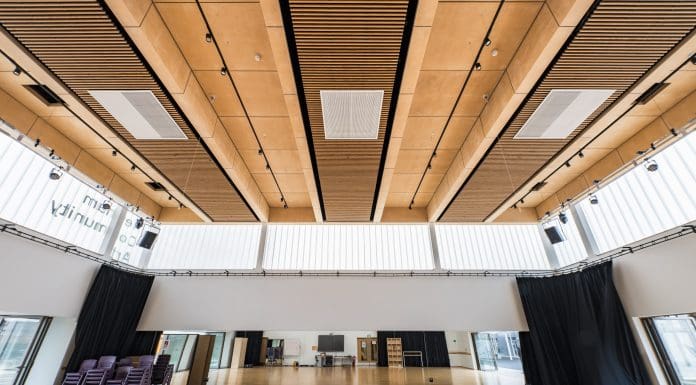The construction sector remains vital to the British economy. Against the backdrop of a changing political landscape, Jackie Maginnis, chief executive of the Modular & Portable Building Association (MPBA), considers the wider implications of slowing or even stalling the delivery of public projects
According to the ONS, the construction industry employed 6% of the UK workforce in March 2024 and generated 6.1% of total gross value added in the country in Q1 2024. The latest analysis from PwC reported that the UK construction sector is set to experience a modest decline in activity this year, with a return to growth expected in 2025.
Is the construction sector finally turning the corner? It very well could be- but what we need now is support from government.
Back in July, chancellor Rachel Reeves “paused” the former government’s £20bn New Hospital Programme. The health secretary Wes Streeting confirmed Labour will complete the plans at some point, but the big question is when?
As we wait for an update on this and the delivery strategy for the School Rebuilding Programme, in an interview with the BBC, the health secretary stated that this may be over a longer time frame, saying: “I’ve got to make sure firstly the money is there, secondly that the timetables are realistic and we’ve got the supply chain, the labour and the resources that we will need, and thirdly I’ve got to balance the need for new bricks and mortar alongside the need for new technology.”
Willowfield Building King’s College Hospital by Premier Modular. Image: Premier Modular
I find his comments concerning on many levels. We have the supply chain in place now, but any substantial delay will put this at risk. Slowing or even stalling the build of the 40 new hospital schemes under the programme will have a massive impact on patient care, together with many of our members involved in the delivery programme. These modular manufacturers worked 24/7 during the pandemic to rapidly bring much-needed facilities on stream.
Modern methods of construction (MMC) are fundamental to both the health and education building programmes.
One thing we have learned from the residential sector is that the stop-start nature of housebuilding is not conducive to maintaining the operation of high-tech volumetric modular factories.
Vast investment is required in digital construction and advanced manufacturing technologies and what is needed to maintain these operations, is a regular pipeline of work
to cover the overheads.
Across the years, the MPBA and our members have been lobbying government to not only raise political awareness but gain an in-depth understanding of the technologies involved and fully embrace the benefits these advanced construction methods bring to public projects.
Referring to “bricks and mortar” shows a lack of understanding of modern construction methods that are driven by digital innovations both in design and manufacturing.
St Peters Hospital by Premier Modular. Image: Premier Modular
Wider implications for the UK construction industry
We understand the challenges facing healthcare and education providers – stalling or delaying the delivery timeframe of capital construction programmes will create ripples throughout the associated supply chain.
The knock-on effect needs to be carefully considered before taking drastic action. Planning only for the here and now is not what healthcare, education or the construction industry needs – we must have a long-term strategy, an investment plan for the future.
MPBA
The Modular & Portable Building Association plays a key role in supporting all sections of the industry. Leading best practice principles, the association is represented on many committees for the benefit of members.
Most importantly, the association ensures evolving government policies and decisions are not made on behalf of the construction industry without due consideration for the impact they may have on the volumetric modular sector.
The MPBA and members firmly believe that the benefits of manufactured buildings begin in the factory, continue to the construction site and last through the lifetime of the building.
With its powerful combination of controlled deliverables and customisable outputs, modular construction provides cost and time efficiencies together with repeatable quality and safety – meeting the demands of construction clients and end users.
The post The potential domino effect of government decisions on the UK construction industry appeared first on Planning, Building & Construction Today.


